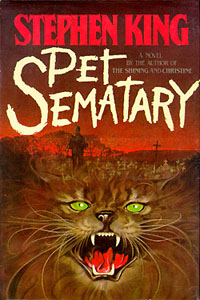
He was the centerman who held the greatest scoring record of them all before Wayne Gretzky came along and broke it - 76 goals in a single season in 1970-71. Espo won the Art Ross Trophy five times, the Hart Trophy twice, the Lester B. Pearson Award twice and the Lester Patrick Trophy for service to hockey in the United States. What's more, he was a ten-time All-Star and represented Canada in the 1972 Summit Series, the 1976 Canada Cup and the 1977 World Championship. While a member of the Boston Bruins, he scored 40 or more goals in seven straight seasons and 50 or more in five straight seasons. In his 76-goal season, he also recorded an amazing 76 assists for a league record at the time of 152 points. Phil Esposito grew up in Sault Ste. Marie, Ontario, and must have had plenty of target practice against his younger brother Tony, who went on to become one of the game's great goalies. Unbelievably, Phil had a hard time at first even breaking into the NHL. He played for the St. Louis Braves in the Central Hockey League from 1962 until 1964. In his first year with the Braves, he scored 90 points in just 71 games and waited expectantly to be called up by the Chicago Black Hawks, the team that owned his rights. But the Hawks kept him waiting and he responded by recording another 80 points in just 43 games in his second year with the Braves before finally getting the call to the Hawks.


He scored 23, 27 and 21 goals in his first three seasons in the Windy City, and fans of the team noted he was often in on key scoring situations with linemate Bobby Hull. But Esposito never felt that Hawks coach Billy Reay had very much confidence in him. Sure enough, he was shipped to the Boston Bruins for the 1967-68 season. The Black Hawks thought they were unloading an unproven talent to the Boston club, but in fact the trade only went in favor of the Bruins. Over his career in Beantown, he joined up with greats Bobby Orr, Wayne Cashman, Ken Hodge and Gerry Cheevers on a powerhouse team that won two Stanley Cups in three years. While Espo was gaining a reputation among NHL coaches and fans as a goal scorer, his fellow players were also beginning to recognize that they were dealing with a real character and a practical joker in the dressing room and on road trips. He liked to smoke cigars, and one reporter, noting his constantly furrowed brow and droopy expression, started calling him "the Happy Worrier." Besides these traits, teammates noticed that he was a player who stuck steadfastly to ritual. One night when a sore throat caused him to put on a black turtleneck, he played especially well. From then on, the turtleneck became a regular part of his game-time garb. This was just one example of the quirky Esposito's adherence to game-day habits. On the international front, Phil starred for Team Canada in the classic Summit Series as the leading individual scorer - with seven goals and six assists - and inspirational leader of the team that defeated the Soviets in the best eight-game series ever played. He joined brother Tony, who was teaming with Ken Dryden as the Canadian netminder on the legendary team. After the glory years in Boston, Esposito was traded to the New York Rangers early in the 1975-76 season and found life a lot different in the world's media capital. He had slowed down a step, and the critics were descending on him, perhaps because he had been such a brash character in his prime. After retiring from the Rangers, Esposito became one of the team's assistant coaches and then moved on to a position as a TV analyst for the Madison Square Garden network. In 1986 he was named vice-president and general manager of the Rangers, a position he later accepted with the expansion Tampa Bay Lightning when that team entered the league.






































































































































































0 Comments:
Post a Comment
<< Home